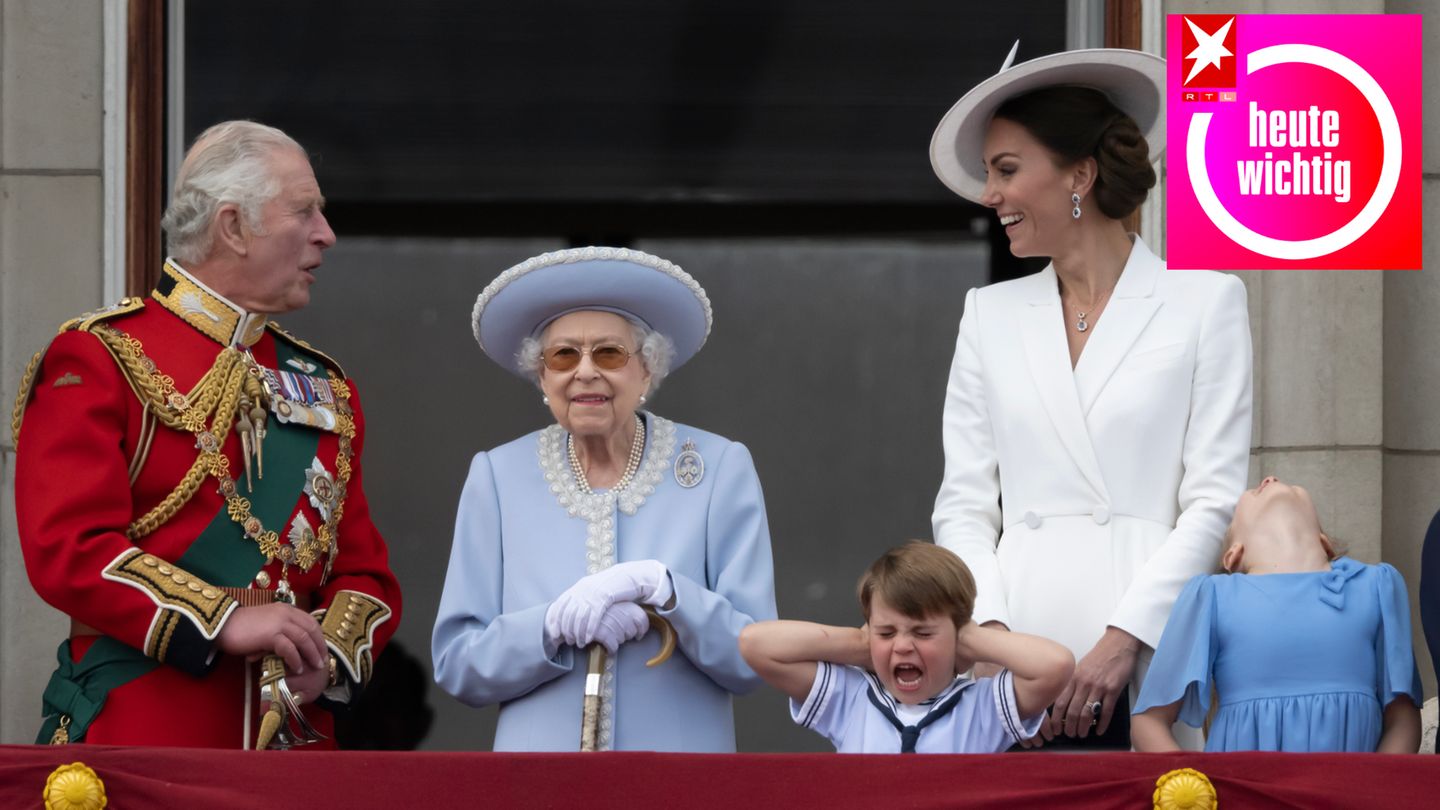podcast
The death of Queen Elizabeth II will not only change Britain, but the structure of the entire British monarchy. Even the new King Charles thinks so star-Correspondent Dagmar Seeland.
In the British monarchy not all that glitters is gold. Nevertheless, the death of Queen Elizabeth II is of immense importance. Just looking at the numbers makes that clear. Hardly anyone knows the world without the Queen. The Washington Post found that nine out of ten people worldwide were born after she ascended the throne more than 70 years ago. This is one of the reasons why many followed the royal spectacle at the weekend, but also the grief of an entire nation. Because Great Britain loses an essential constant with the death of the queen, explains the starCorrespondent Dagmar Seeland in the 359th episode of “today important”: “I think the population had the feeling that as long as the Queen was still there with her mild smile and her confidence-inspiring manner, it wouldn’t be so ‘bad’ if Boris Johnson lies and tries to test the limits of democracy.” People felt even safer. That sense of security is gone now, or at least has shrunk significantly, especially after last week’s political earthquake: “People started the week with Prime Minister Boris Johnson and a Queen. And they ended the week with Prime Minister Liz Truss and King Charles III.” That’s too much change at once for many, according to Seeland.
Great Britain in a generation conflict: what happens next with the monarchy?
Charles III, the now officially proclaimed king, won’t have an easy time winning people’s hearts. Even less so in the rest of the Commonwealth than in Great Britain itself, the correspondent explains: “Some states already announced during William and Kate’s trip in the spring that they were considering whether they needed a king at all.” States like Australia or the Caribbean island states of Antigua and Barbuda have been thinking about becoming a republic for some time. So far, some have not yet renounced the crown because of the Queen. That could change with Charles: “It was already problematic that these states have an old white queen who keeps the memory of the colonial empires alive. And if a new, old white king comes, it will become even more problematic.” Breaking away from the Crown does not automatically mean leaving the Commonwealth of Nations. This is still popular, according to Seeland.
“Young people tend to believe that this theater is no longer needed”
But even within Great Britain there is a generational clash, reports Dagmar Seeland in the podcast. This is particularly evident in these days when a new king is being proclaimed. Many events may seem historical, but they date from the 19th or 20th century: “Many of these supposedly centuries-old traditions were only introduced under Queen Victoria or shortly before. Basically it’s a disguise,” says Seeland amused. This is another reason why younger generations in particular are of the opinion that the monarchy should be slimmed down, perhaps abolished, but in any case reformed. So they shouldn’t walk in front of completely closed doors, Seeland believes: “If you read between the lines, I think even he is of the same opinion about everything Charles is up to.”
Your subscription to “important today”
Don’t miss an episode of “today important” and subscribe to our podcast at: , , , or in your favorite podcast app. If you have any questions or suggestions, please write to us.
Source: Stern
David William is a talented author who has made a name for himself in the world of writing. He is a professional author who writes on a wide range of topics, from general interest to opinion news. David is currently working as a writer at 24 hours worlds where he brings his unique perspective and in-depth research to his articles, making them both informative and engaging.




